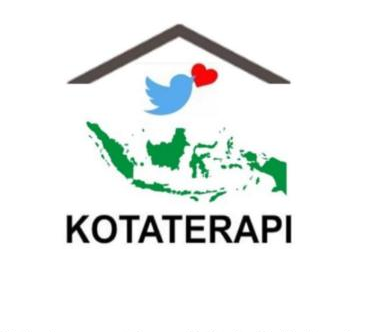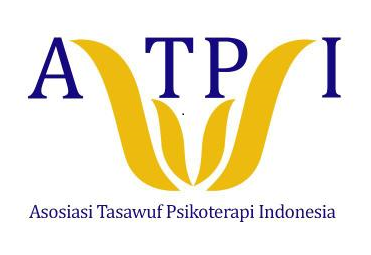Psikospiritual Islam dan Perilaku Terorisme di Indonesia
Upaya Memahami Motif Perilaku Kekerasan Berdalih Jihad di Indonesia
DOI:
https://doi.org/10.28918/jousip.v3i2.2005Keywords:
Psychospiritual Islamic Counseling, Motives for Violent Behavior, Terorisme, JihadAbstract
The application of Islamic psychospiritual counseling can use various therapeutic techniques such as meditation, self-healing, trauma healing, and so on. As a form of providing solutions to improve mental health and develop aspects of an individual's spirituality and religiosity to become a different individual than before. Handling violent behavior under the pretext of jihad through healing techniques to form a constructive self both in terms of cognition, feelings and behavior and focusing on aspects of the belief system. to further examine terrorism from a psychospiritual (psychological and religious) perspective in relation to models of acts of terrorism or violence in Indonesia. This research is a descriptive qualitative research that tries to describe what and the lessons behind terrorism incidents. The results of this research are: 1). The application of Islamic psychospiritual counseling can use various therapeutic techniques such as meditation, self-healing, trauma healing and so on. As a form of providing solutions to improve mental health and develop aspects of an individual's spirituality and religiosity to become a different individual than before: 2). Handling violent behavior under the pretext of jihad can be done through independent healing techniques with the aim of forming a constructive self both in terms of cognition, feelings and behavior and focusing on aspects of the belief system. The changes experienced by Ali Fauzi practically psychologically can be seen from his current positive self-image by returning and supporting the Republic of Indonesia.
References
Aarten, P. G., Mulder, E., & Pemberton, A. (2018). The narrative of victimization and deradicalization: An expert view. Studies in Conflict & Terrorism, 41(7), 557–572.
Bandura, A., Freeman, W. H., & Lightsey, R. (1999). Self-efficacy: The exercise of control.
Belew, K., & Gutierrez, R. A. (2021). A field guide to white supremacy. Univ of California Press.
Bjorgo, T., & Horgan, J. G. (2008). Leaving terrorism behind: Individual and collective disengagement. Routledge.
Borum, R. (2011). Radicalization into violent extremism I: A review of social science theories. Journal of Strategic Security, 4(4), 7–36.
Chaliand, G., & Blin, A. (2007). The history of terrorism: From antiquity to al Qaeda. Univ of California Press.
Cheikh Husain, S. (2020). Muslim Community Organizations’ Perceptions of Islamophobia: Towards an Informed Countering Response. Religions, 11(10), 485.
Cottee, S., & Hayward, K. (2011). Terrorist (e) motives: The existential attractions of terrorism. Studies in Conflict & Terrorism, 34(12), 963–986.
Crenshaw, M. (1981). The causes of terrorism. Comparative Politics, 13(4), 379–399.
Crenshaw, M. (2007). The logic of terrorism. Terrorism in Perspective, 24, 24–33.
Creswell, J. W. (2010). Research design pendekatan kualitatif, kuantitatif, dan mixed. Yogyakarta: Pustaka Pelajar.
Damara, C. (2021). 1 Oktober 2005: Tragedi Bom Bali II, 26 Orang Tewas Termasuk Orang Asing. Liputan6.Com. https://www.liputan6.com/global/read
Dian Andryanto. (2021). Bom Bali 12 Oktober 2002 Tewaskan 202 Orang, Amrozi Mengaku sebagai Pelaku. Tempo.Co Bicara Fakta.
Erikha, F., & Rufaedah, A. (2019). Dealing with terrorism in Indonesia: An attempt to deradicalize, disengage and reintegrate terror inmates with a social psychology approach. In Terrorist rehabilitation and community engagement in Malaysia and Southeast Asia (pp. 131–138). Routledge.
Eunike, P., & Putrawan, B. K. (2021). Islamic Radicalism: History and a Case Study in the Indonesia Context. Jurnal Theologia, 32(2), 153–172.
Huberman, M., & Miles, M. B. (2002). The qualitative researcher’s companion. sage.
Hudson, R. A., & Majeska, M. (1999). The sociology and psychology of terrorism: Who becomes a terrorist and why?
Jongman, A. J., & Schmid, A. P. (1999). Trends in contemporary conflicts and human rights violations, 1998. Terrorism and Political Violence, 11(3), 119–150.
Lasmawati, A., Meliala, A. E., & Puteri, N. M. M. (2021). Adolescent, radicalism, and terrorism in indonesia: Experts’ view. Journal of Social and Political Sciences, 4(4).
LeMura, L. M. (1998). The biophysical foundations of human movement.
Mitchell, J., King, A. S., Hayward, S., Singh, J., Wilkes, G., Rey, J., & Timani, H. (2022). World Religions and Peace. The Wiley Blackwell Companion to Religion and Peace, 21–38.
Moghaddam, F. M. (2009). The new global American dilemma and terrorism. Political Psychology, 30(3), 373–380.
Moleong, L. J. (1989). Metodologi penelitian kualitatif. (No Title).
Mubarak, Z. (2012). Fenomena terorisme di Indonesia: Kajian aspek teologi, ideologi dan gerakan. Jurnal Salam, 15(2).
Nahdohdin, M., Angelianawati, D., Prasetya, A. P., Yaoren, K. Y., Dhanaraj, J., Bashar, I., See, S., & Nasir, A. A. (2019). SOUTHEAST ASIA: Indonesia, Philippines, Malaysia, Myanmar, Thailand, Singapore. Counter Terrorist Trends and Analyses, 11(1), 6–32.
Nawaz, M., Akhtar, S., & Asghar, M. (2023). Drivers of Ethnic Terrorism: Case of Baloch Nationalist Movement (BNM). Global Social Sciences Review, VIII.
Neuendorf, K. A. (2017). The content analysis guidebook. sage.
Olsen, D. H., & Emmett, C. F. (2020). Contesting religious heritage in the Middle East. In Cultural and heritage tourism in the Middle East and North Africa (pp. 54–71). Routledge.
Pahleviannur, M. R., De Grave, A., Saputra, D. N., Mardianto, D., Hafrida, L., Bano, V. O., Susanto, E. E., Mahardhani, A. J., Alam, M. D. S., & Lisya, M. (2022). Metodologi Penelitian Kualitatif. Pradina Pustaka.
Rahma, G. N. (2021). The Role of Tarekat in Awakening the Spirit of Nationalism: Study of the Thought and Movement of Habib Luthfi bin Yahya. Journal of Sufism and Psychotherapy, 1(2), 127–140. https://doi.org/https://doi.org/10.28918/journalofsufismandpsychotherapy.v1i2.149
Rahman, M. T., & Setia, P. (2022). Organisasi gerakan Islamis dan keamanan di Jawa Barat dan Banten. Prodi S2 Studi Agama-Agama UIN Sunan Gunung Djati Bandung.
Rahmat, M. I., Mahdi, S., & Bhawono, S. (2005). Arus Baru Islam Radikal: Transmisi Revivalisme Islam Timur Tengah ke Indonesia. (No Title).
Rottweiler, B., & Gill, P. (2022). Conspiracy beliefs and violent extremist intentions: The contingent effects of self-efficacy, self-control and law-related morality. Terrorism and Political Violence, 34(7), 1485–1504.
Schuurman, B. (2019). Topics in terrorism research: Reviewing trends and gaps, 2007-2016. Critical Studies on Terrorism, 12(3), 463–480.
Schwartz, S. J., Dunkel, C. S., & Waterman, A. S. (2009). Terrorism: An identity theory perspective. Studies in Conflict & Terrorism, 32(6), 537–559.
Shumilin, A. I. (2021). Middle East Conflicts Today: Between Religion and Geopolitics. Mirovaia Ekonomika i Mezhdunarodnye Otnosheniia, 65(1), 50–60.
Stankova, M., Tsvetkov, T., & Ivanova, L. (2019). Tourist development between security and terrorism: Empirical evidence from Europe and the United States. Oeconomia Copernicana, 10(2), 219–237.
Subagyo, A. (2021). The implementation of the pentahelix model for the terrorism deradicalization program in Indonesia. Cogent Social Sciences, 7(1), 1964720.
Taylor, M., & Horgan, J. (2006). A conceptual framework for addressing psychological process in the development of the terrorist. Terrorism and Political Violence, 18(4), 585–601.
Webber, D., & Kruglanski, A. W. (2018). The social psychological makings of a terrorist. Current Opinion in Psychology, 19, 131–134.
Winter, D. G. (2003). Personality and political behavior.
Zulfikar, M., & Aminah, A. (2020). Peran Badan Nasional Penanggulangan Terorisme dalam Pemberantasan Terorisme di Indonesia. Jurnal Pembangunan Hukum Indonesia, 2(1), 129–144.
Downloads
Published
Issue
Section
License
Copyright (c) 2023 Agus Santoso

This work is licensed under a Creative Commons Attribution-ShareAlike 4.0 International License.

















